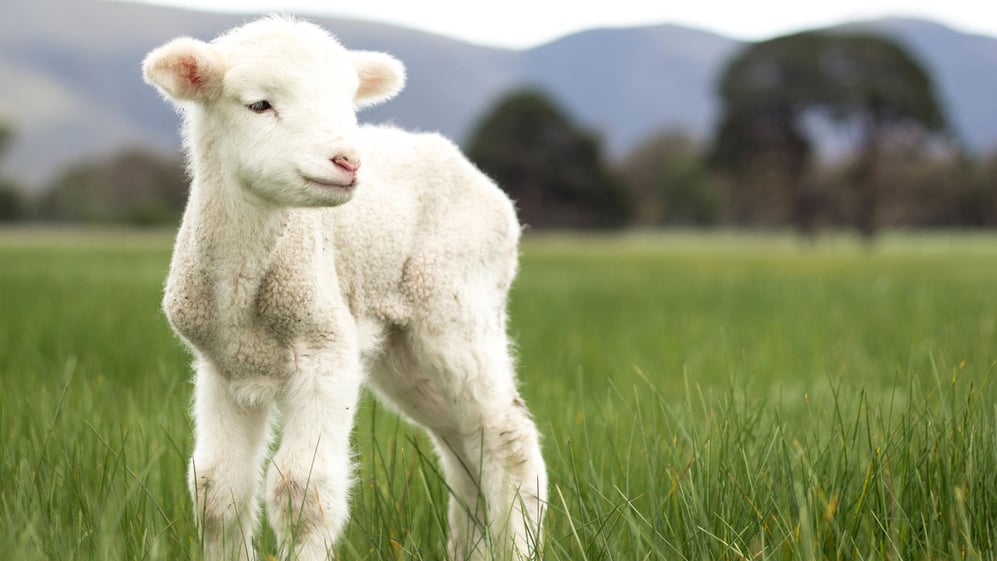This post is an excerpt adapted from Praise & Honor by Timothy J. Shoup
Imagine that I am standing next to you on the edge of the Going-to-the-Sun Road as we look out across a massive rocky and forested canyon at majestic Glacier National Park. What could I possibly say to enhance the moment? That is what it feels like now—what am I to say about the Twenty-Third Psalm? Perhaps comparing the ancient psalm to Luke’s poetic account of Christ’s birth is helpful. Learning about the shepherds that night who received from an angel the Good News, “Fear not. ... Unto you is born ... a Savior” (2:10–11), brings to us comfort and joy. Similarly, Psalm 23, with the Shepherd imagery and the Shepherd’s sevenfold action—
He makes me lie down
He leads me beside still waters
He restores my soul
He leads me in paths of righteousness
You are with me
You prepare a table for me
You anoint my head with oil—
brings comfort and peace, does it not? Try it. If I may suggest with all seriousness, sit with the psalm when you first awake, after each meal, and again at bedtime. Slow your mind. Ponder each phrase to absorb the message. Try it for seven days.
Without first reading a book about a shepherd’s life and work, few of us comprehend it, and thus we cannot fully appreciate the psalm’s imagery. Nonetheless, many of us gladly memorized the psalm. We turn to it especially when grief or anxiety overwhelm. The psalm’s Gospel message appeals to both the mind and heart.
Turn to the psalm now. Look at the second word of the first verse, and the second-last word of the last verse. Lord is our oft-used English way of conveying the great name Yahweh. The psalm is comforting because it begins and ends with Yahweh; there is no god like Him (1 Samuel 2:2). Yahweh is steadfast in love (Psalm 118:1). He is gracious and merciful (Psalm 145:8). Yahweh keeps promises. He does mighty deeds (Psalm 77:11–20). He does for His sheep, for His children, what He says because He loves us. Yahweh is never a no-show. He does not miss. The center verses prescribe His acts; the outer mark them for completion, because His name is assigned to them.
David is clear. The Lord is his Shepherd. The verb is powerful. Not “if only” the Lord were my Shepherd, or “one cannot ever know for sure” if the Lord is our Shepherd, or “it all depends upon whether I choose” the Lord, or “I am too weak, too sinful, and too uncommitted” for the Lord to be my Shepherd. No, those are not correct. David did not say those things. David states the God-blessed reality, which is current and ongoing. David confesses, “The Lord is my shepherd” (Psalm 23:1, emphasis added). What is true for David, the Holy Spirit has made true for you and for me. Holy Baptism makes it so. The Holy Spirit leads us to say what is so true (1 Corinthians 12:3). Jesus is Lord. The Lord is our Shepherd.
Devotions on Stanza One:
The Lord's my shepherd, I'll not want; He makes me down to lie, In pastures green; He leadeth me, The quiet waters by.
The young shepherd walks in front of his sheep. David does not drive them; he calls them by name. Danger intensifies each evening with the cover of darkness shading the rocks, crags, and predators—beast or bandit. The shepherd keeps watch. He guards the sheep, and they know it. David’s early life is simple, framed by God’s provision in open country and His Word within his heart. The comforts his seven brothers enjoyed—roof, table, and family—were unfamiliar to David the shepherd. Nonetheless, he was content. God met his needs, leading him to the green pastures and refreshing waters enjoyed by his sheep. Consider this bit of commentary, dating to the late-nineteenth century:
It would be well for us, amid the complexity and anxiety of our modern life, if we could catch something of his spirit. For the most part, our distress, our poverty, our carking care come, not from the smallness of our provisions, but from the largeness of our pampered desires. We are afraid that we shall not always have cake, and so we forget that God has promised that His children shall not lack bread. (Van Dyke, 33)
As spot-on as this is for my generation—we grew up when material things were coveted—materialism in the form of cars and clothes may not be the primary idol and source of envy for today’s younger people, married with double incomes or not, as they readily afford whatever they want. What they want, they go get, often without waiting. That is not necessarily sinful. However, when wanting included waiting and saving, the illusion of contentment-about-to-be-fulfilled was sustained for as long as it took to collect the funds to make the acquisition. Acquiring, however, pulls back the curtain to let-down—anticipation is replaced by acquisition—and a new round of contentment-seeking begins. With means to bypass wanting and waiting, the sinful nature seeks contentment and fulfillment elsewhere and often does so through children and their achievements. Either way, contentment through acquisition or through achievement, the author’s conclusion is helpful:
A little plain living would lead to higher thinking. It would do us good, it would do our children good, if we should learn that the real necessities and the best joys of human life are very simple ... and for these we have a right always to trust God. (Van Dyke, 33)
For me, these words—real necessities, best joys ... are very simple, and for these we have a right always to trust God—recently hit home. On my way home after a trip to Green Bay to play golf at a course I enjoy, I saw my wife a quarter mile from our driveway, alongside a brown-topped cattail marshy area. When she walked into the house, I asked, “So what were you doing?” My farm-girl bride replied, “Relocating a few toads from our window well to a habitat more to their liking.” I had to wonder if my walk that afternoon, including the cost, was as satisfying as hers. For those moments of discontent when wanting becomes the dominant emotion against a perceived lack of worldly pleasure, we do well to ask: Why does the Maker of heaven and earth, the judge of all mankind, deal so lovingly with me?
The author whose thoughts about this psalm, which we were pleased to include above, also missed something: How does one sing or recite Psalm 23:1, “The Lord is my shepherd; I shall not want,” without thinking about the words of the Good Shepherd as John recorded them? With the Lord as our Shepherd, surely we may enjoy contentment. Why waste life by wanting? But the Good Shepherd will do more. He will lay down His life for His sheep. The ease these days of finding even in small-town America a little boy or girl without loving, caring parents who are the Shepherd’s instruments of provision accentuates the significance of looking past what the eyes see. So let us listen to what the voice of the Good Shepherd says. “I am the good shepherd. ... I lay down My life for the sheep. ... My sheep hear My voice, and I know them, and they follow Me. I give them eternal life, and they will never perish, and no one will snatch them out of My hand” (John 10:14–15, 27–28).
The Lord's my shepherd, I'll not want.
Excerpt is adapted from Praise & Honor by Timothy J. Shoup, pages 236-241 © 2019 Timothy J. Shoup, published by Concordia Publishing House. All rights reserved.
Van Dyke quotes are from Henry Van Dyke, The Story of the Psalms (New York: Charles Scribner's Sons, 1910).
Scripture: ESV®.
Hymn text: Lutheran Service Book © 2006.
Want more devotions on “The Lord's My Shepherd, I'll Not Want” and 13 other beloved hymns? Order Praise & Honor today!













